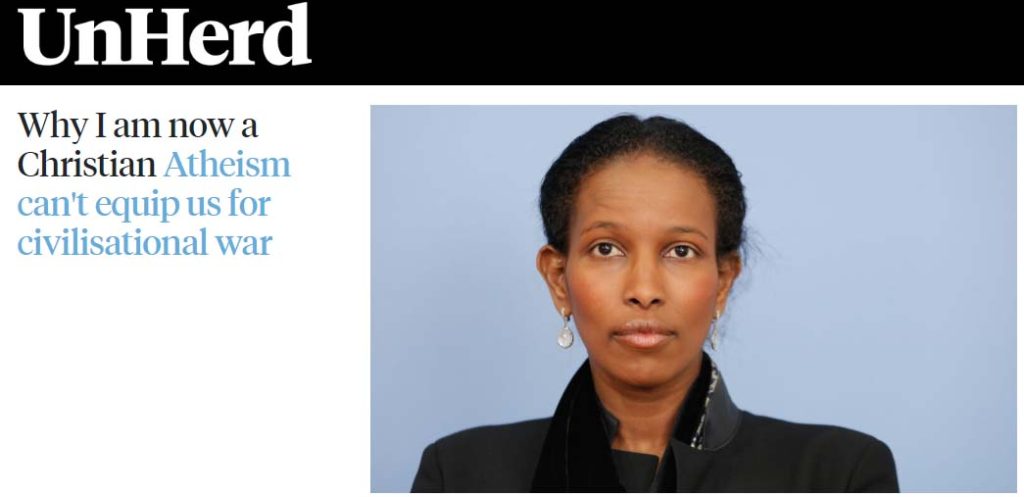“The reports of my death are greatly exaggerated.”
– Mark Twain
“Why do you seek the living among the dead? He is not here, but is risen!”
– Luke 24:5-6
In 1882, Friedrich Nietzsche’s Madman declared, “God is dead.” In 1966, Time Magazine posed the question, “Is God Dead?” For the last sixty years, the Western world has been living under the increasingly accepted assumption that there is no God in heaven; He exists only in our imaginations or the fictions we sell and tell. But in the last decade, something surprising has happened. The delusion that “God is not” has begun to be questioned by some of the public intellectuals who once believed it a fact. The impetus for the backsliding of their unbelief has not been the expert arguments and proofs for God’s existence delivered by Christian apologists. Instead, the reason has been something like an individual and culture-wide existential crisis.
In the early 2000s, as the new atheists burst onto the scene to decry the foolishness and failures of God and His followers. They seemed to believe that once God was officially banished from the West, we would all lay down our holy writ and religious dogma. We would unite around common, enlightened values of equality, knowledge, scientific and technological progress, reason, rationality, and tolerance. Everyone would be wholly committed to human rights, flourishing, well-being, kindness, and inclusive compassion in their optimistic utopia. But that is not what appears to be happening. A quarter century later, contrary to the predictions of some new atheists, Western culture has not united around enlightened values as religion has declined; rather, it has become increasingly fragmented, with rising rates of anxiety, depression, reduced life expectancy, and diminished well-being. Not only theists have noticed.
Over the last decade, prominent thinkers like Jordan Peterson, Gad Saad, and Douglas Murray have gained massive followings as they have written and talked about the decline of Western civilization. Once highly progressive comedians like Bill Maher, Joe Rogan, Dave Chappelle, and Russell Brand suddenly sound like staunch conservatives as they shift their rhetoric on issues of human identity and the need for meaning. Hardly a week goes by in which some marginally well-known secularist is not “Red-pilled” by the realities of the cultural madness that seems to abound. Even the godfather of the new atheists, critically acclaimed author of The God Delusion, Richard Dawkins, was stripped, in 2021, of his “Humanist of the Year” title for having the insane audacity to declare that there are only two sexes. In these and many other ways, we see the veneer beginning to crack.
I argued in a previous post that every worldview must provide coherent and meaningful answers to a series of philosophical questions surrounding issues of identity, purpose, origin, destiny, and morality. If the stories we value and the personal philosophies (i.e., worldviews) we hold do not provide adequate answers to these questions, we are in danger—as individuals and as a society—of sliding toward a nihilistic despair. That appears to be happening within our culture, but how far the slide will go is really anyone’s guess. As the slide becomes more pronounced, I think we can expect additional voices to surface—some from unexpected places—calling us back to well-worn paths and old truths.
One such unexpected voice arose in November of 2023 when an online magazine called UnHerd published an essay entitled “Why I am now a Christian” by former Muslim and apparently now former Atheist Ayaan Hirsi Ali. Ali’s essay surprised many, as she had long been identified with prominent atheists like Richard Dawkins and the late Christopher Hitchens. In her piece, Ali argues that Western civilization is under threat from forces that are “eating into the moral fibre of the next generation.” She laments that the tools of our modern secularism are losing ground to the encroaching foes, writing, “[W]e can’t fight off these formidable forces unless we can answer the question: what is it that unites us? The response that “God is dead!” seems insufficient.”
Ten days after the release of Ayaan’s essay, UnHerd broadcasted an interview and question and answer session on the contents of the essay with Ali. Near the end, an incredulous-looking audience member asked, “Do you believe that we were created by the Abrahamic God?” To which Ali answered:
“I choose to believe that story [of the Abrahamic God who created everything] because the legacy of that story is what we’re living through. So yes, it’s partly pragmatic. And yes, it’s partly personal and spiritual. And it’s a story I like because it’s a story that says, ‘Human life is worth living because it’s in the image of God.’ And instead of seeking God somewhere out there, who’s ordering you to do all sorts of things, God is something in you. That’s much, much more appealing to me than the story, ‘There’s nothing there, you have no more value than mold.’ And that’s atheism. And if you tell people they have no more value than mold, then what’s the point?”
Do not be at all surprised if Ayaan’s conversion is the first of many. Do not be surprised if the “Abrahamic God” begins to breathe again and rise from the dead. It wouldn’t be unprecedented.
Miles is the senior pastor of Cross Connection Church in North San Diego County, California. He serves as a board member at Enduring Word and Blue Letter Bible.
Miles has a master of divinity degree from Gateway Seminary in California, and is finishing a doctor of educational ministry at Southern Baptist Theological Seminary in Kentucky.
Miles and his wife Andrea have four children, two dogs, three rabbits, a tortoise, a chinchilla, a hamster, a cat, and a crested gecko.




